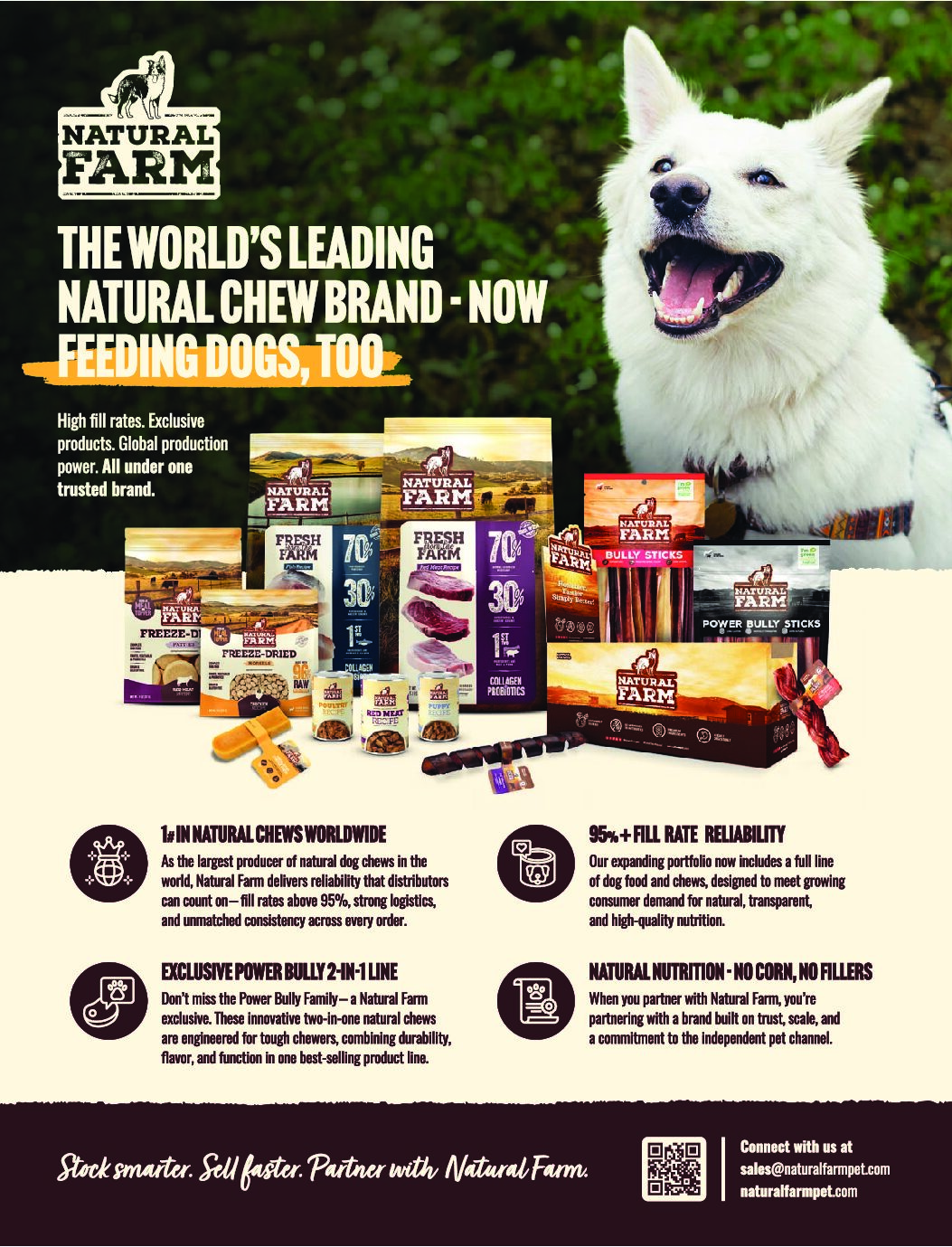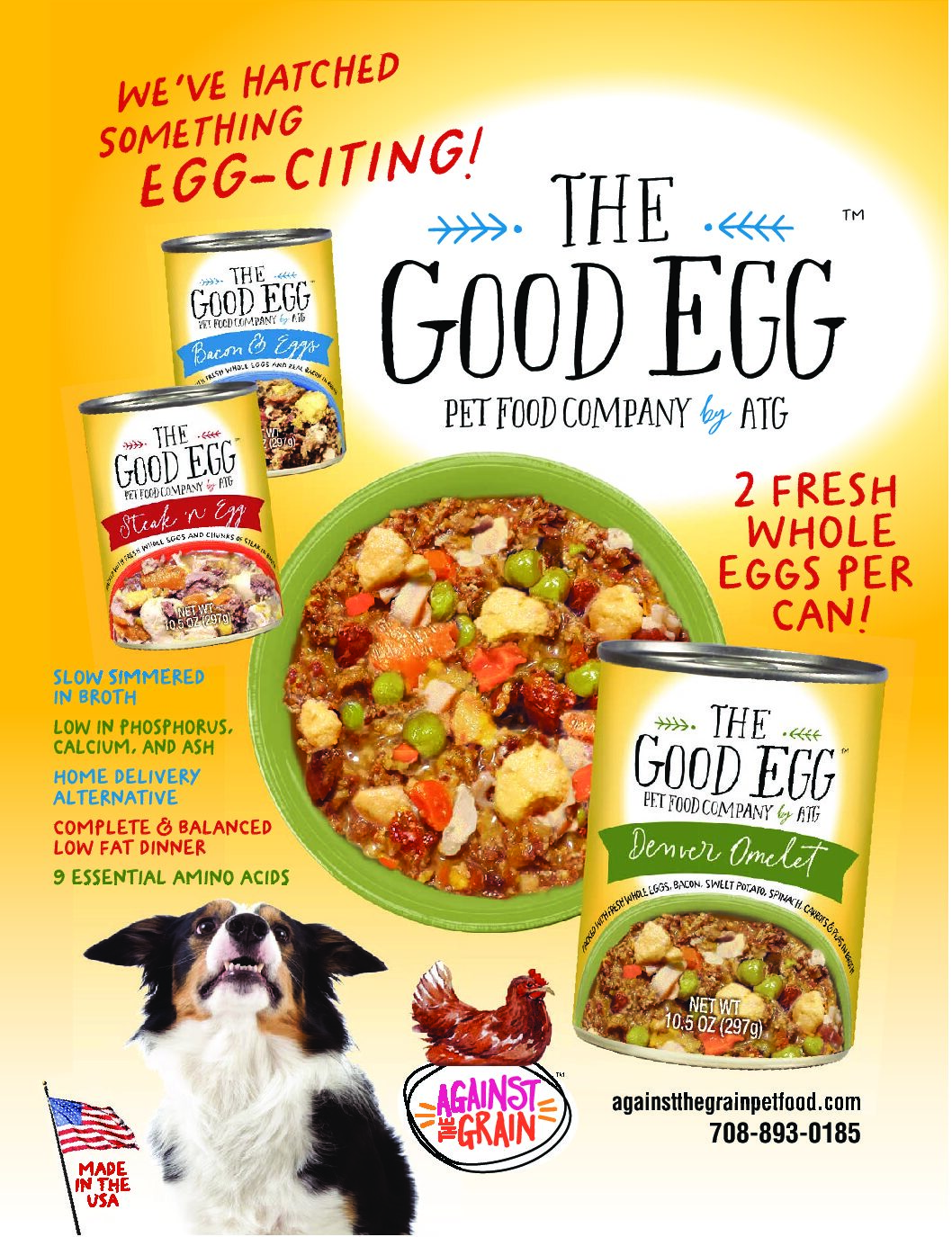Special Report: The State of Distribution
Ongoing consolidation activity in the pet distribution sector has been a hot topic this year, with Pet Food Experts’ acquisition of Animal Supply Company(ASC) at top of mind for most. Among distributors in pet health, Patient Square Capital’s $4.1 billion acquisition of vet and dental product and equipment distributor Patterson Companies is of note as well, signaling interest from human healthcare private equity in the growing pet wellness sector.
Pet Food Experts (PFX) President and CEO Michael Baker told Pet Insight in April that the acquisition was the result of a long-standing relationship between the two companies. ASC’s team served as a sort of mentor to Baker as he worked to grow PFX in the early 2000s, providing guidance on how to diversify their brand portfolio and position the business for future growth.

“They were always generous with their time and open to discuss every topic, big or small, when we sought their advice,” Baker said. “I can’t think of anything ASC was doing that PFX didn’t emulate in one way or another.”
The acquisition of select ASC assets earlier this year was actually the ninth attempt by PFX to combine the two businesses. The transaction makes PFX the nation’s largest pet specialty distributor, and Baker said it gives the company the opportunity to “reboot” several key sales regions, beginning with the Southeast.
While ASC’s neighborhood pet business was impacted by its financial challenges, Baker assured that PFX’s focus on neighborhood retailers hasn’t changed.
“Our strategy has always been rooted in relationships and service. We differentiate ourselves through best-in-class logistics, strong vendor partnerships, and a multigenerational commitment to neighborhood pet retailers,” Baker said. “With the ASC transaction, we’re doubling down on this commitment by investing in new logistical capabilities, expanded geographic reach, and enhanced infrastructure—all to deliver the highest level of service to our partners.”
This move by PFX to expand their territory and logistical capabilities has heated up competition and created unique challenges for smaller, regional distributors. Sunburst Pet Owner Todd Martin said despite 40 years in business, 2025 has been one of the most challenging and competitive. After the ASC acquisition, he saw vendors locking down secondary distributors in every region to make sure their bases are covered in the event of another merger, acquisition or shutdown.
“You can’t blame manufacturers for doing what they do,” Martin said. “There’s a cycle to distribution—you build a brand, and eventually it goes big box, or it goes away, or they get acquired and change directions. Once it gets big enough, the vendors have options, and that’s just reality—so you’ve always got to have something else going for you.”
For Martin, the “something else” is new and innovative brands that he’s excited to bring on board and help grow. “The positive side of all this channel consolidation is that it opens up a lot more opportunities,” he said. “There’s a lot of good products out there at smaller companies, and working with up-and-coming brands that get to be innovative, that are excited about partnering with you, that’s what I look forward to.”
Another positive for Sunburst is their expansion into Las Vegas—the first market outside their home state of Arizona. “Two of our top raw brands said they needed us there,” Martin said. They began distributing to retailers in Vegas in October. Martin said he plans to stay in the market at least a year to see how it goes, and added that early feedback has been positive; he said his sales representative for the area was “so excited” about the responses she got from retailers who needed a new distributor for raw foods (and more). Martin said the experience reminded him why he got into business 41 years ago—to serve others by listening and fulfilling an unmet need.
Living and operating locally gives regional distributors a home field advantage, which makes them attractive to retailers and vendors alike. With more intimate knowledge of their region’s quirks and personality, these distributors can act as business partners, giving recommendations and advice alongside good pricing, quality product and reliable logistics and delivery.
Independent Pet Supply (IPS), a regional distributor that’s been serving the Pacific Northwest for more than 30 years, built their business on these relationships. Founders Neda and Keya Khorami ran a pet retail store before pivoting to distribution, which provided them with a deep level of understanding of their clients’ day-to-day challenges. Their empathetic approach provides customized guidance, tools, support and flexibility to their clients. The end goal—to be an invaluable and trusted partner in their customer’s business, not just a distributor—provides a competitive edge that helps insulate IPS from growing competition.

Similarly, Fauna Foods serves New York City as its native distributor, with its corporate office in Queens. Its nearly 50 years of history in the city give the distributor a unique perspective on the city’s pet—and pet business—owners. Mike Silva, Fauna’s Vice President of Marketing, said their location and logistics are designed to support their core commitments of next-day service and flexibility. “Our Queens warehouse is geographically located within a 200-mile-radius of our entire territory. It allows us to give retailers flexibility with next day ordering options and order entry deadline,” Silva said. “Local retailers also have the option of picking up their orders, which gives them the ability to manage their inventory in an omnichannel world that requires just-in-time inventory.”
Other pressures on local distributors include ongoing tariffs and supply chain issues; while the low fill rates and serious supply problems of the early pandemic years have resolved, the recent tariffs have made sourcing from overseas more difficult as prices soar and shipments shrink.
Across distributors, the biggest growth in the market was reported to be the fresh and frozen food segment. Consumers are less likely to trust fresh and frozen to be shipped safely to their door, lending a competitive edge to local brick and mortar retailers. This pairs well with growing trends in pet wellness; Gen Z and Millennial pet owners especially are driving demand for healthy, holistic, sustainable and ethical pet products, according to the American Pet Products Association’s 2025 State of the Industry report. And according to a late 2024 report by The Harris Poll, Gen Z and Millennials are also leading in annual pet spend, with Gen Z spending $6,103 and Millennials spending $5,150 per year on average. This bodes well for the longevity of both fresh/frozen and holistic pet brands, and provides a lucrative niche for independent retailers to consider.
One of the big challenges with this niche is logistical; smaller pet stores simply don’t have the freezer space to keep up with demand, and local distributors aren’t always equipped to make multiple deliveries per week. To help fix this issue, multiple distributors, including American Distribution and Manufacturing Company (ADMC), Phillips Pet Food and Supplies and Sunburst, have launched programs to help provide retailers with new freezers and equipment. And as demand grows—a good problem to have—distributors are growing their own cold storage capacity as warehouses fill with fresh and frozen food.
Pet Food Experts is also getting in on this logistical growth; the assets they acquired from ASC include a “well-established cold chain (refrigerated and frozen), a robust delivery network (including cross docks and forward distribution centers), and a 3PL channel (direct-to-vet clinics and consumers) network—all of which enhance and diversify PFX’s logistical capabilities,” Baker said. While PFX’s portfolio already included frozen raw and gently cooked food, ASC’s infrastructure allows them to add refrigerated products and greatly expands the reach of their cold-chain capabilities.
Alongside fresh and frozen, Silva said non-consumables and treats are performing well for Fauna Foods. “We are seeing growth throughout our territory,” Silva said. “As mentioned, frozen/fresh is gaining market share with neighborhood pet, but also various non-consumables are doing well for retailers that are more susceptible to omnichannel end-user purchasing behavior. Treats are always a great high margin add-on that allow neighborhood pet to get an impulse purchase at a high margin.”
Despite competition from nationwide power players, tariffs and other challenges, regional distributors clearly aren’t ready to give up the fight. Fauna Foods is looking forward to celebrating their 50th anniversary at their trade show next June, and they’re embracing the challenges and changes facing the industry.
“The pet industry is always evolving,” Silva said. “We love the competition, the daily journey in providing superior products and customer service to our valued retailers.”
With an emphasis on service, and an eye for innovation, these distributors are zooming in, not out, and are committed to the success of local independent pet stores.
Inside
Retailer Focus: Hollywood Feed
Special Report: The State of Distribution
Special Report: Private Label in Pet
Category Catalysts: Natural Litter - World's Best Cat Litter
Category Catalysts: Paw Care - Pet King Brands
Category Catalysts: Fish-Based Treats - Snack 21
Category Catalysts: Crickets - Armstrong’s Cricket Farm
Category Catalysts: PetShop by Fringe Studio - Plush Toys
Category Catalysts: Supplements - SynergyLabs
Category Catalysts: Freeze-Dried Premium Foods - Green JuJu
Category Catalysts: Unscented Litter - Dr. Elsey's
Category Catalysts: Cat Treats - Vital Essentials
Category Catalysts: Oral Care - Oxyfresh
Category Catalysts: Dog Beds - Barker Beds
Category Catalysts: Non-Rawhide Chews - Earth Animal
Category Catalysts: Reptile Accessories - Komodo
Category Catalysts: Novel Protein Treats - ROAM Pet Treats
Category Catalysts: Freeze-Dried Toppers - West Paw
Category Catalysts: Cat Toys - Meowijuana
Category Catalysts: Meat-Focused Treats - Vitakraft
Category Catalysts: Gently Cooked Premium Foods - Nulo
Category Catalysts: Dental Chews & Treats - Loving Pets
Q&A Interview with Ricardo Azevedo, CEO of Woof Gang Bakery & Grooming

